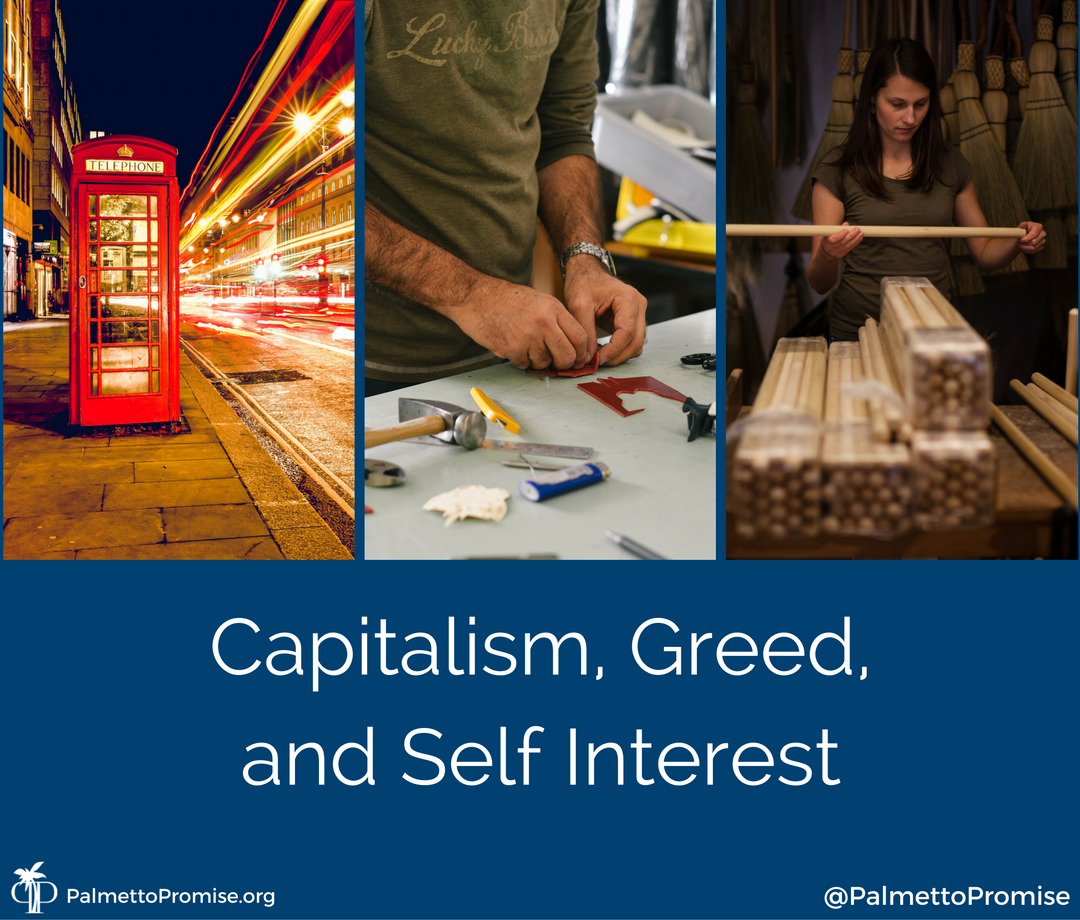Capitalism, Greed, and Self Interest

Jessa Potvin
Imagine that you, through no fault of your own, have been caught by one of those interviewers who expose people’s ignorance by asking them questions they ought to know but unfortunately do not. Just as young college students have been asked to identify recent presidents, you, a dedicated conservative, have been asked to defend capitalism…
The interviewer leans in. “Is capitalism a system of greed?”
With seconds ticking by and a microphone hovering about you, how would you answer?
In 1979 Nobel Prize-winning economist, Milton Friedman, interviewed with talk-show host Phil Donahue, who asked Friedman if he had ever had “a moment of doubt about capitalism” and if greed (that is, capitalism) was “a good idea to run on.”
Friedman replied, “What kind of society isn’t structured on greed? You think Russia doesn’t run on greed? You think China doesn’t run on greed?”
Conservatives are glad to acknowledge that greed is immoral, but we have also observed that greed is inescapable and universal. Russia and China had embraced centralized economic and political schemes and their populaces had suffered because power was concentrated in a few. These few were greedy and flawed, as is all humanity, and a centralized system offered little limit on their immoral or unwise behavior.
The market, however, with the aid of a limited government, actually inhibits immoral behavior and allows people to express themselves and their values through their work.
As Friedman later remarked in the Donahue interview, “The world runs on individuals pursuing their separate interests… The record of history is absolutely crystal clear that there is no alternative way, so far discovered, of improving the lot of the ordinary people that can hold a candle to the productive activities that are unleashed by a free enterprise system.”
When individuals possess the freedom to pursue their separate interests– their own well-being, preferences and desires– society benefits.
Economists usually refer to these separate interests with the phrase “self-interest.” We might hear the word self-interest and then associate it with the concept of selfishness, but that would be a mistake. If a man put on a nice, clean shirt for a job interview, which would be in his self-interest, we would not fault him or say he had performed a moral wrong.
Selfishness can taint someone’s self-interest, but the market can orient selfish individuals towards helping others. The authors of Common Sense Economics (a book which Friedman heartily endorsed) explain, “People who earn large incomes do so because they provide others with lots of things that they value. If these individuals did not provide valuable goods or services, consumers would not pay them so generously. There is a moral here: if you want to earn a large income, you had better figure out how to help others a great deal.”
Capitalism is a profoundly moral system. Greed may be everywhere, but capitalism is the economic system that limits it best. No one man or bureaucracy can possibly organize or enforce a centralized economic system without great loss of freedom and productivity. Where there is liberty, people flourish. That is why capitalism is worth defending.
Of Note: This post is the culmination of Jessa’s year-long internship with Palmetto Promise. We wish you all the best as you head off to college this fall, Jessa: with thoughtful citizens like you on the horizon, hope for freedom is not lost!
Sources:
http://www.wsj.com/articles/notable-quotable-milton-friedman-1434318595
http://commonsenseeconomics.com/excerpts-from-the-book/




